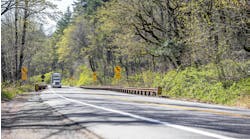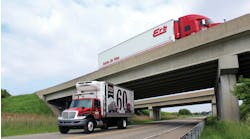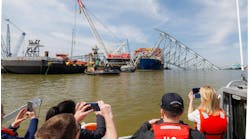As a result of C-TPAT, businesses will take significant steps toward policing themselves at international borders in exchange for a quicker trip through Customs.
"This program is important because it strengthens the security of our borders while speeding up the flow of legitimate goods," said Homeland Security Director Tom Ridge. "If America has the opportunity to make a strategic investment that not only enhances security but makes us a better, safer, stronger, or healthier country, then we need to do that."
After the September 11 terrorist attacks, international trade suffered a serious slowdown as U.S. Customs tightened security at the nation's borders. Michigan Gov. John Engler, noting that more trade crosses Detroit's Ambassador Bridge in a year than occurs between the United States and Japan through all contacts, said C-TPAT aims to "put in safeguards without causing undue traffic delays."
For C-TPAT participants, the program will establish dedicated commercial lanes wherever possible at highway crossing points, an assigned account manager to facilitate the traffic, reduced inspections and other benefits.
"The message should be clear – if a business takes steps to secure its cargo against terrorism, we will give it the fast lane through the border," said customs commissioner Robert C. Bonner.
Businesses must apply to participate, and sign an agreement committing them to:
- Conduct a comprehensive self-assessment of supply-chain security using guidelines developed by Customs in concert with the trade industry.
- Submit a supply-chain security questionnaire to U.S. Customs
- Develop and implement a security enhancement program
- Share C-TPAT guidelines with other companies in the supply chain and encourage their participation.
BP America, DaimlerChrysler, Ford Motor Co., General Motors Corp., Motorola, Sara Lee and Target are C-TPAT's first participants. Sixty other companies have signed agreements and the applications of 100 more are pending.


